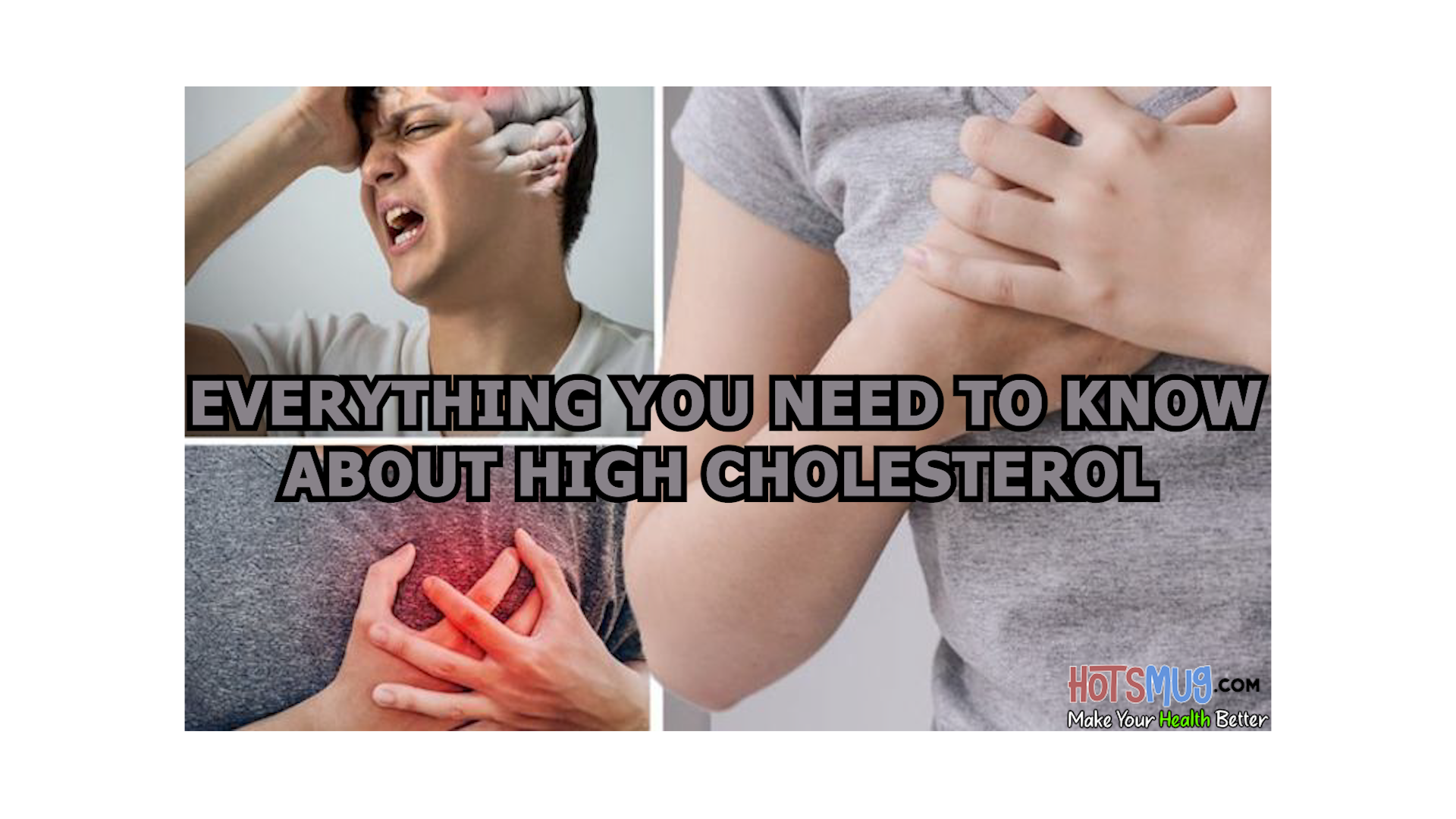Cholesterol is a waxy, fat-like substance our body needs for the formation of cells, certain hormones and vitamin D. Our body produces cholesterol and it’s also found in some foods. There are both good and bad types of cholesterol in our body. If we produce too much of the bad cholesterol, it can lead to many health problems, including heart attack or stroke.
Although bad for our bodies, high cholesterol usually causes no symptoms, unless at very high levels. That’s why it’s important to get your cholesterol levels checked regularly.
What is cholesterol?
Cholesterol is a fatty/waxy substance produced by our body. Everyone has some. It is needed for good health. However, some individuals may have too of much cholesterol. And, individuals with high cholesterol may have a greater risk of strokes, heart attacks, and other ailments compared to those with less cholesterol. The higher your level of cholesterol is, the higher is your risk.
Are there different types of cholesterol?
Yes, there are a few different types. If you take a cholesterol test, your doctor might talk to you about:
- Total cholesterol
- LDL (Low-density lipoprotein) cholesterol – This is also called bad cholesterol. That’s because it can build-up plaque in your arteries increasing the risk of heart disease.
- HDL (High-density lipoprotein) cholesterol – HDL is also called good cholesterol. That’s because people with high HDL levels tend to have a lower risk of heart attacks, strokes, and other health problems.
- Non-HDL cholesterol – Non-HDL cholesterol is your total cholesterol minus your HDL cholesterol.
- Triglycerides – Triglycerides are not cholesterol. They are another type of fat. But they often get measured when cholesterol is measured. (Having high triglycerides also seems to increase the risk of heart attacks and strokes.)
What should my numbers be?
Talk to your doctor or nurse on what your cholesterol numbers should be. Different people need different goals. Generally, people with no heart ailments aim for:
- Total cholesterol below 200
- LDL cholesterol below 130 – or much lower, if they are at risk of heart attacks or Headache
- HDL cholesterol above 60
- Non-HDL cholesterol lower than 160, if they are at risk of heart attack or stroke
- Triglycerides below 150
Keep in mind, though, that many people who cannot meet these goals still have a low risk of heart attacks and strokes.
Often, there are no specific symptoms of high cholesterol. You could have high cholesterol and not know it.
If you have high cholesterol, your body may store the extra cholesterol in your arteries. These are blood vessels that carry blood from your heart to the rest of your body. A buildup of cholesterol in your arteries is known as plaque. Over time, plaque can become hard and make your arteries narrow. Large deposits of plaque can completely block an artery. Cholesterol plaques can also break apart, leading to formation of a blood clot that blocks the flow of blood.
A blocked artery to the heart can cause a heart attack. A blocked artery to your brain can cause a stroke.
Many people don’t discover that they have high cholesterol until they suffer one of these life-threatening events. Some people find out through routine check-ups that include blood tests.
Your liver produces cholesterol, but you also get cholesterol from food. Eating too many foods that are high in fat can increase your cholesterol level.
Being overweight and inactive also causes high cholesterol. If you are overweight, you most likely have a higher level of triglycerides. If you never exercise and aren’t active in general, it can lower your HDL (good cholesterol).
Your family history also affects your cholesterol level. Research has shown that high cholesterol tends to run in families. If you have an immediate family member who has it, you could have it, too.
Smoking also causes high cholesterol. It lowers your HDL (good cholesterol).
You can’t tell if you have high cholesterol without having it checked. A simple blood test will reveal your cholesterol level.
Men 35 years of age and older and women 45 years of age and older should have their cholesterol checked. Men and women 20 years of age and older who have risk factors for heart disease should have their cholesterol checked. Teens may need to be checked if they are taking certain medicines or have a strong family history of high cholesterol. Ask your doctor how often you should have your cholesterol checked.
Risk factors for heart disease include:
Making healthy food choices and exercising are two ways to reduce your risk of developing high cholesterol.
Eat fewer foods with saturated fats (such as red meat and most dairy products). Choose healthier fats. This includes lean meats, avocados, nuts, and low-fat dairy items. Avoid foods that contain trans fat (such as fried and packaged foods). Look for foods that are rich in omega-3 fatty acids. These foods include salmon, herring, walnuts, and almonds. Some egg brands contain omega-3.
Exercise can be simple. Go for a walk. Take a yoga class. Ride your bike to work. You could even participate in a team sport. Aim to get 30 minutes of activity every day.
If you have high cholesterol, you may need to make some lifestyle changes. If you smoke, quit. Exercise regularly. If you’re overweight, losing just five to 10 pounds can improve your cholesterol levels and your risk for heart disease. Make sure to eat plenty of fruits, vegetables, whole grains, and fish.
Depending on your risk factors, your doctor may prescribe medicine and lifestyle changes.
If you have high cholesterol, you are twice as likely to develop heart disease. That is why it is important to have your cholesterol levels checked, especially if you have a family history of heart disease. Reducing your LDL “bad cholesterol” through good diet, exercise, and medicine can make a positive impact on your overall health.
Symptoms of high cholesterol
What causes high cholesterol?
How is high cholesterol diagnosed?
Can high cholesterol be prevented or avoided?
High cholesterol treatment
Living with high cholesterol
Questions to ask your doctor




